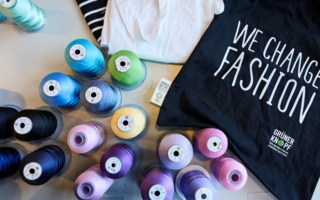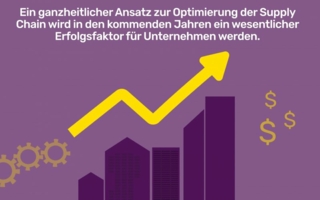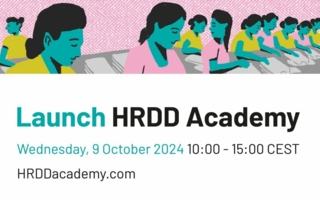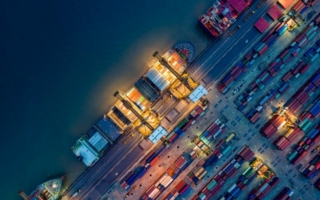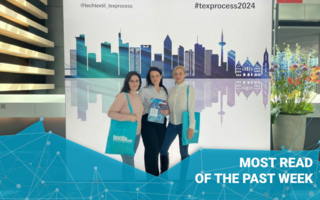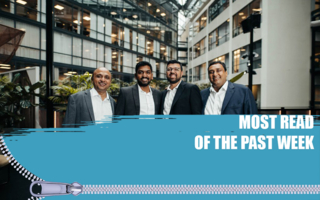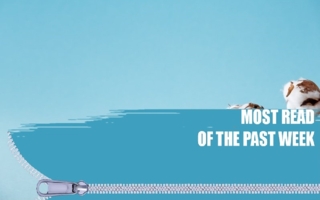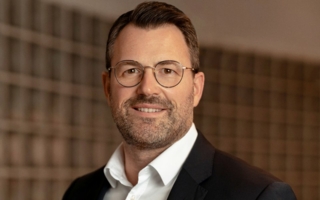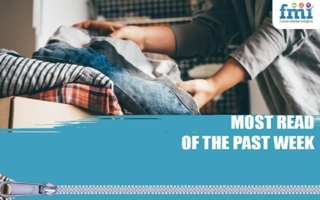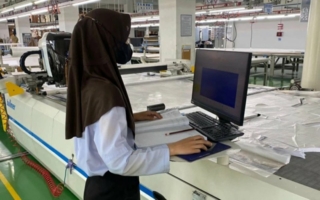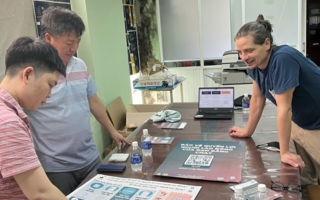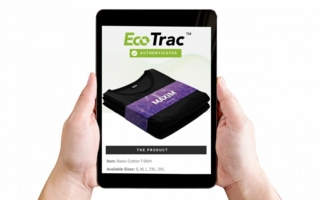The Corona pandemic has exacerbated supply chain difficulties. More than ever, restructuring and modernization of the entire supply chain is needed. Added to this are the sometimes inhumane environmental and working conditions along the supply chain. To create sustainability and transparency, the new supply chain due diligence law came into force on January 1, 2023. In addition, the EU is working on further supply chain-related requirements that will soon take effect.
With our topic page "Supply Chain", we would like to keep you up to date with the latest developments and information offers on the area of supply chain, so that you know at an early stage what you can do as a company or what you are obliged to do.
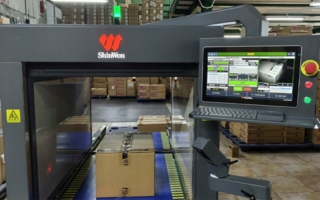
Shinwon's RFID Tunnel system verifies product quantities in real time, eliminating packaging errors across global production sites. © Shinwon Corporation
02/12/2025 – Supply Chain Digitalisation
Supply Chain Digitalisation
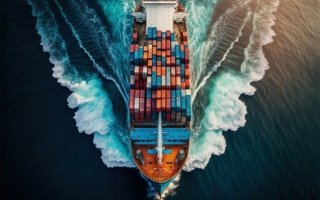
Container ship on the high seas: Changes in transport routes are part of everyday business for companies today. © AkuAku / stock.adobe.com generiert mit KI
28/10/2025 – SCM software
SCM software
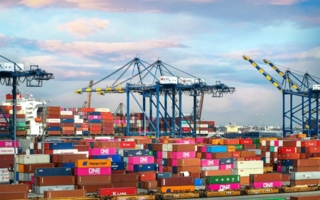
Global supply chains can be managed more efficiently by using Setlog's SCM software, now through a new partnership with the RealCore Group. © Barrett Ward
26/06/2025 – Cooperation
Cooperation

According to the latest data, in 2024, compared to data from 2023, nonwovens production in Greater Europe increased in volume by 2.6% to 2,976, 400 tonnes, and by 2.9% in surface area resulting in 85.1 billion square meters of nonwovens being manufactured. © Edana
05/05/2025 – On our own behalf
On our own behalf

They are delighted about the opening: Maryann Ramirez, Strategic Lead MMCF Producers, Canopy, Tamara Stark, Head of Impact, Canopy, Bela Zhou, translator and interpreter, Janey Lee, Yibin Grace. © Yibin Grace Group/Hou Yiliing
29/04/2025 – Opening
Opening

“Real change requires a supply chain law that holds all companies accountable,” insists CEO Antje von Dewitz. © Vaude
26/03/2025 – Fair working conditions
Fair working conditions
11/10/2024 – Cloud based digital platform
Cloud based digital platform
04/10/2024 – Navigating human rights due diligence (HRDD) implementation
Navigating human rights due diligence (HRDD) implementation
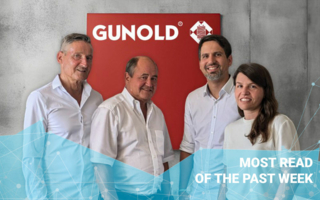
The family business from Stockstadt will now be managed by the fourth generation. From left to right: Aileen Gunold, Kevin Gunold, Christoph Gunold und Stephan Gunold © Gunold
19/08/2024 – On our own behalf
On our own behalf

To protect themselves against the challenges of global supply chains, more and more companies are adopting a holistic concept for the automated monitoring of their entire supply chain management processes. © Destina/stock.adobe.com
15/08/2024 – Hermes Barometer on risk management along the supply chain
Hermes Barometer on risk management along the supply chain
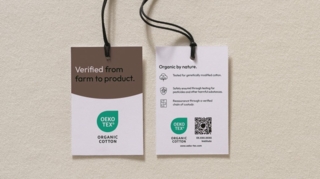
Products bearing the Oeko-Tex Organic Cotton label have been manufactured without the use of GMOs and tested for pesticides and other harmful substances. © Oeko-Tex
30/07/2024 – Oeko-Tex certification
Oeko-Tex certification
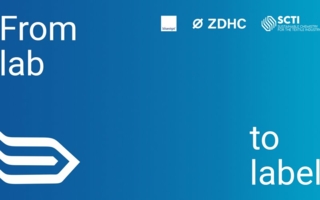
The textile industry is taking a great step forward in sustainable practices as bluesign and SCTI donate the pioneering sustainable chemistry index (SCI) methodology to ZDHC. © SCTI/bluesign/ZDHC
04/07/2024 – From lab to label
From lab to label

Elena Schneider, President Pettinatura di Verrone and G. Schneider (on the left), Giovanni Schneider, President of G. Schneider, and Marco Schneider, G.Schneider Shareholder (on the right) are ready to go to the next level with the new brand Authentico. © The Schneider Group
26/06/2024 – Schneider Group
Schneider Group

Textile Genesis and The Good Cashmere Standard collaborate to combat fraud and ensure tracability in cashmere production worldwide. © Textile Genesis
22/04/2024 – Textile Genesis/The Good Cashmere Standard
Textile Genesis/The Good Cashmere Standard
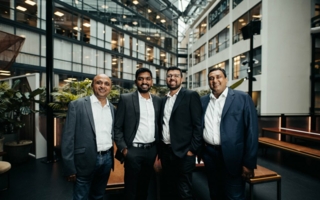
(From left to right): Madhava Venkatesh, Saravanan Parisutham, Hrishikesh Rajan and Shameek Ghosh. © TrusTrace
22/01/2024 – Finding the right digital backbone
Finding the right digital backbone
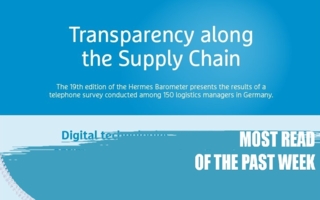
More than two thirds of a total of 150 logistics managers at German companies surveyed (68%) agree that the information requirements for their own supply chain have increased significantly in light of the new legal guidelines. © Hermes Group © Hermes Group
17/01/2024
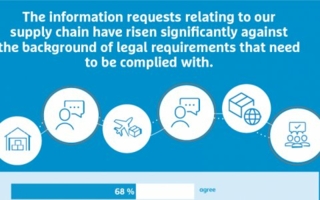
More than two thirds of a total of 150 logistics managers at German companies surveyed (68%) agree that the information requirements for their own supply chain have increased significantly in light of the new legal guidelines. © Hermes Group
08/01/2024 – Trends supply chain management
Trends supply chain management
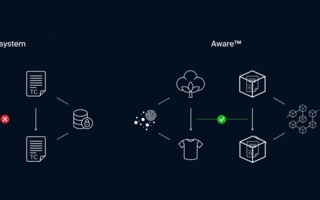
Primary data and technology outperforms current standard, transaction certificates are no longer necessary. © Aware
09/10/2023 – Aware
Aware
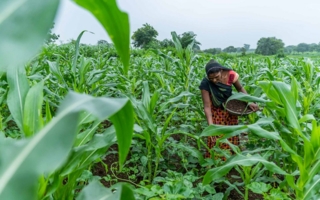
S.Oliver Group supports organic cotton through direct supply chain to India. © Organic Cotton Accelerator (OCA)
20/09/2023 – s.Oliver Group
s.Oliver Group

The digital supply chain is no longer a futuristic concept; it`s a reality, moving fashion at the speed of digital culture, and offering a path towards a more sustainable, responsive, and profitable future. © Kornit
31/08/2023 – Kornit Digital Europe
Kornit Digital Europe
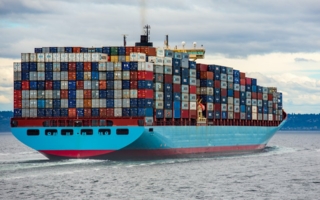
Containers with goods from the Far East: The price for transporting a standard 40-foot container from Asia to North Sea ports has dropped below 1,200 Dollar, depending on the relation. © Ian Taylor
08/08/2023 – Supply Chain
Supply Chain
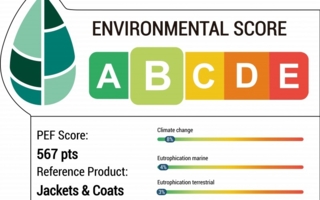
Reminding of food traffic light labelling: By entering a few data points, brands can generate an initial PEF score which is valided by TrusTrace data. © Peftrust/TrusTrace
06/07/2023 – Collaboration
Collaboration

Lin-Ay by Binky Pitogo is a clothing brand that infuses modernity to the Phillipine National Costume. © Lin-Ay by Binky Pitogo
03/07/2023 – Source Fashion
Source Fashion

FibreTrace Mapped provides transparency in one easy to use, globally accessible platform with no fees attached. © Fibre Trace
01/02/2023 – Supply chain transparency
Supply chain transparency

The EU regulation on deforestation-free supply chains was adopted at the end of 2022. © malp/stock.adobe.com
25/01/2023 – Deforestation-free supply chains
Deforestation-free supply chains
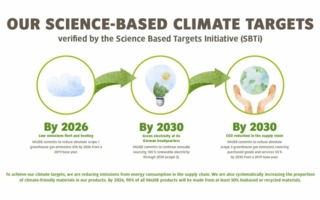
One of Vaude’s goals is to reduce its CO2 emissions in the global supply chain by 50% by 2030. © Vaude
19/01/2023 – Sustainability
Sustainability
16/01/2023 – Supply chain – digital complaints system
Supply chain – digital complaints system

Daniel Harari, Chairman and Chief Executive Officer of Lectra: “We look forward to joining forces with TextileGenesis’ talented teams to accelerate the development of their sustainable material traceability solution.” © Lectra
13/12/2022 – Acquisition
Acquisition

Prompted by the EU Strategy for Sustainable and Circular Textiles, Apparel brands intensify collaboration with supply chains. © malp/stock.adobe.com
01/12/2022 – EU Strategy for Sustainable and Circular Textiles
EU Strategy for Sustainable and Circular Textiles
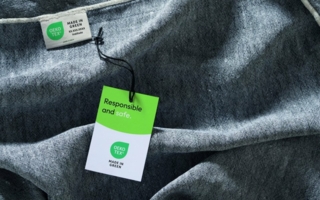
With the new tool and certification, Oeko-Tex aims to prevent and mitigate existing and potential negative impacts of companies’ own business operations, their supply chains and in their wider business relationships. © Oeko-Tex
14/11/2022 – Tangible support for due diligence
Tangible support for due diligence

Kelheim Fibres is a leading manufacturer of viscose speciality fibres used in fashion, hygiene and medical products, nonwovens etc. © Kelheim Fibres
11/11/2022 – Transparency in the textile chain
Transparency in the textile chain
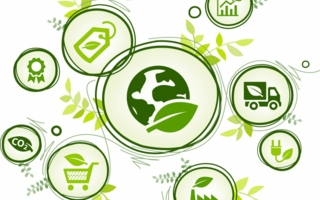
?From March to December 2021, a group of public buyers of garment and textiles participated in a pilot project to explore the integration of OECD risk-based due diligence into the public procurement of garment and textiles – the OECD Pilot. © j-mel/stock.adobe.com
30/08/2022 – OECD e-learning course
OECD e-learning course
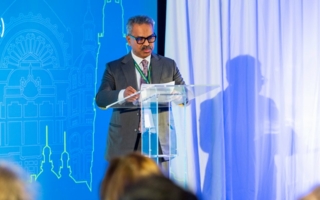
Faruque Hassan, president of the BGMEA: “We believe that sustainability is not only about fulfilling social, ecological and community obligations; it is also about building a strategic coalition among the broader stakeholders toward a sustainable, resilient, modern, fair and equitable supply chain.” © Yvonne Heinen-Foudeh
29/08/2022 – Apparel Manufacturing Hub
Apparel Manufacturing Hub
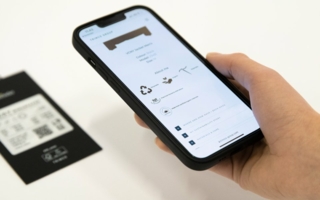
Trims solutions specialist, Trimco Group, introduces supply chain transparency and traceability platform: Product DNA. © Trimco Group

